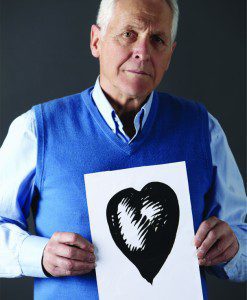 February is designateda as American Heart Month., but every month should be focused on strengthening community through healthy living, and the promotion for everyone to take steps in the prevention of chronic diseases, such as heart disease, so they can lead longer, healthier lives.
February is designateda as American Heart Month., but every month should be focused on strengthening community through healthy living, and the promotion for everyone to take steps in the prevention of chronic diseases, such as heart disease, so they can lead longer, healthier lives.
According to the Centers for Disease Control and Prevention (CDC), heart disease is responsible for one in four deaths each year in the United States. The root causes of many chronic diseases are unhealthy behaviors such as physical inactivity, unhealthy eating and tobacco use. There are a lot of questions about heart disease, the causes and prevention. Nurse On Call had the opportunity to chat with Dr. Socrates Perez-Rodriguez, who specializes in internal medicine and has his own medical practice and is a hospitalist at Physicians Regional. Dr. Socrates Perez-Rodriguez, did his internship and residency at Jersey City Medical Center, Jersey City, NJ and has practiced medicine at many renowned hospitals including Columbia. We asked him a series of questions relevant to heart health and these were his responses:
What causes cardiovascular disease?
Dr. Socrates Perez-Rodriguez, MD-There are many risk factors that contribute to the development of cardiovascular disease. Some people are predisposed to heart disease and stroke, but most people who develop cardiovascular disease do so because of a combination of factors such as poor diet, lack of physical activity and smoking.
What is the connection between high blood pressure (hypertension) and heart disease?
Dr. Socrates Perez-Rodriguez- Blood moving through your arteries pushes against the arterial walls; this force is measured as blood pressure. The harder your heart has to work to pump blood through the smaller space, the pressure inside the vessels grows, elevating your blood pressure.
How is coronary heart disease diagnosed?
Dr. Socrates Perez-Rodriguez- There are a number of ways to diagnose coronary heart disease. A coronary angiogram uses a dye inserted into your arteries and an x-ray to see how the blood flows through your heart. Another test is an electrocardiogram. This test records the electrical activity of your heart. An electrocardiogram measures the rate and regularity of heartbeats, the size and position of the heart chambers, the presence of any damage to the heart, and the effects of drugs or devices used to regulate the heart. It is a non-invasive procedure.
Does diet play a part in the development of heart disease?
Dr. Socrates Perez-Rodriguez-Diet plays a significant role in protecting or predisposing people to heart disease. Diets high in animal fat, low in fresh vegetables and fruit, and high in alcohol have been shown to increase the risk of heart disease. A diet low in fat and salt has a proven to be effective long term.
Is heart disease hereditary?
Dr. Socrates Perez-Rodriguez-Heart disease can run in the family, however, even if you inherit the risks factors that predispose you to heart disease, such as high blood cholesterol, high blood pressure, diabetes, or being overweight, there are measures you can take that will help you avoid developing cardiovascular disease.
What are the newest advances in heart treatments and diagnoses?
Dr. Socrates Perez-Rodriguez- There are some new advances but it’s a constantly evolving field. We can offer many more treatments that are less invasive which doesn’t always mean one could go into a procedure. It could be as simple as sitting down with your doctor and determining the symptoms. There are different ways of evaluation such as stress tests and if there are abnormal results, we can complete Ct scan or cardiac MRI.
At the end of the day “Coronary artery disease is preventable,” said Dr. Socrates Perez-Rodriguez, “You need to be aware of your own body, genetics and habits. Typical warning signs are chest pain, shortness of breath, palpitations and even fatigue, but in diabetic patients symptoms are usually absent.”
Nurse On Call Home Healthcare has specialty cardiac team committed to the prevention, education and treatment of heart disease. If you have further questions about Heart Disease, local cardiologist, support groups and non-profit organizations committed to Heart Health contact your local Nurse On Call Home Healthcare branch.
Nurse On Call
941.627.1650







